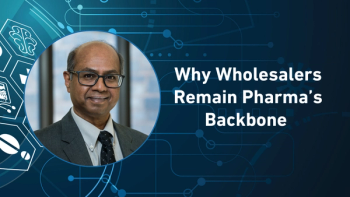
- Pharmaceutical Commerce - April 2010
Prime Therapeutics identifies factors influencing drug adherence
90-day supplies and lower out-of-pocket expenses positively impact compliance
A pair of studies presented by Prime Therapeutics (St. Paul, MN) at the Academy of Managed Care Pharmacy’s annual meeting (San Diego, April 7-10) offers insight on drug adherence among patients with chronic conditions and cancer.
The first study, co-authored with BlueCross BlueShield of Illinois, found that patients suffering from chronic conditions who receive their medication in 90-day supplies are 40% less likely to have drug adherence problems than patients who receive 30-day supplies. (Pharmacy benefit manager Prime Therapeutics is a subsidiary of a dozen BCBS plans or their affiliates.)
For the study, researchers tracked adherence among BCBS Illinois patients with a first claim for cholesterol-lowering, hypertension or diabetes medications for 18 months. Patients either received their medicine in the mail or picked it up at a store, and Prime found no significant difference in adherence between the two dispensing channels (which will trouble store operators who believe that they are better at patient adherence than mail order is).
Prime notes that previous research had indicated higher adherence levels among patients who receive 90-day supplies of medication in the mail versus patients who picked up 30-day supplies at a pharmacy, but that it had been unclear whether the determining factor for adherence was the delivery method or the extended supply.
For a second study presented at AMCP’s meeting, Prime looked at the effect out-of-pocket (OOP) expenses have on “abandonment” (roughly comparable to nonadherence) with oral oncology regimens and found that—no surprise here—as OOP expenses increases, adherence decreases. The study followed 1,909 patients who had varying OOP expenses for oral oncology medications Tarceva, Gleevec, Sutent, Nexavar, Tykerb, Sprycel or Tasigna. Prime found that one in six patients with an OOP expense of greater than $200 abandoned therapy and were at least three times more likely to abandon therapy than patients with an OOP expense of $100 or less.
Prime says the study was performed to provide insight on adherence as insurance companies explore methods, including increasing OOP expense, to help manage these costly drug regimens. It also notes that its average cost across all these therapies rose by 17.6% in 2009 over 2008, to $2,942 per month.
These and other adherence, medication management and cost-effectiveness studies are abstracted in the March issue of
Articles in this issue
over 15 years ago
PBMs contact Congress over proposed USPS five-day delivery scheduleover 15 years ago
FDA puts a spotlight on cargo theft of life sciences productsover 15 years ago
New study sets benchmark for post-marketing surveillance processNewsletter
Stay ahead in the life sciences industry with Pharmaceutical Commerce, the latest news, trends, and strategies in drug distribution, commercialization, and market access.



